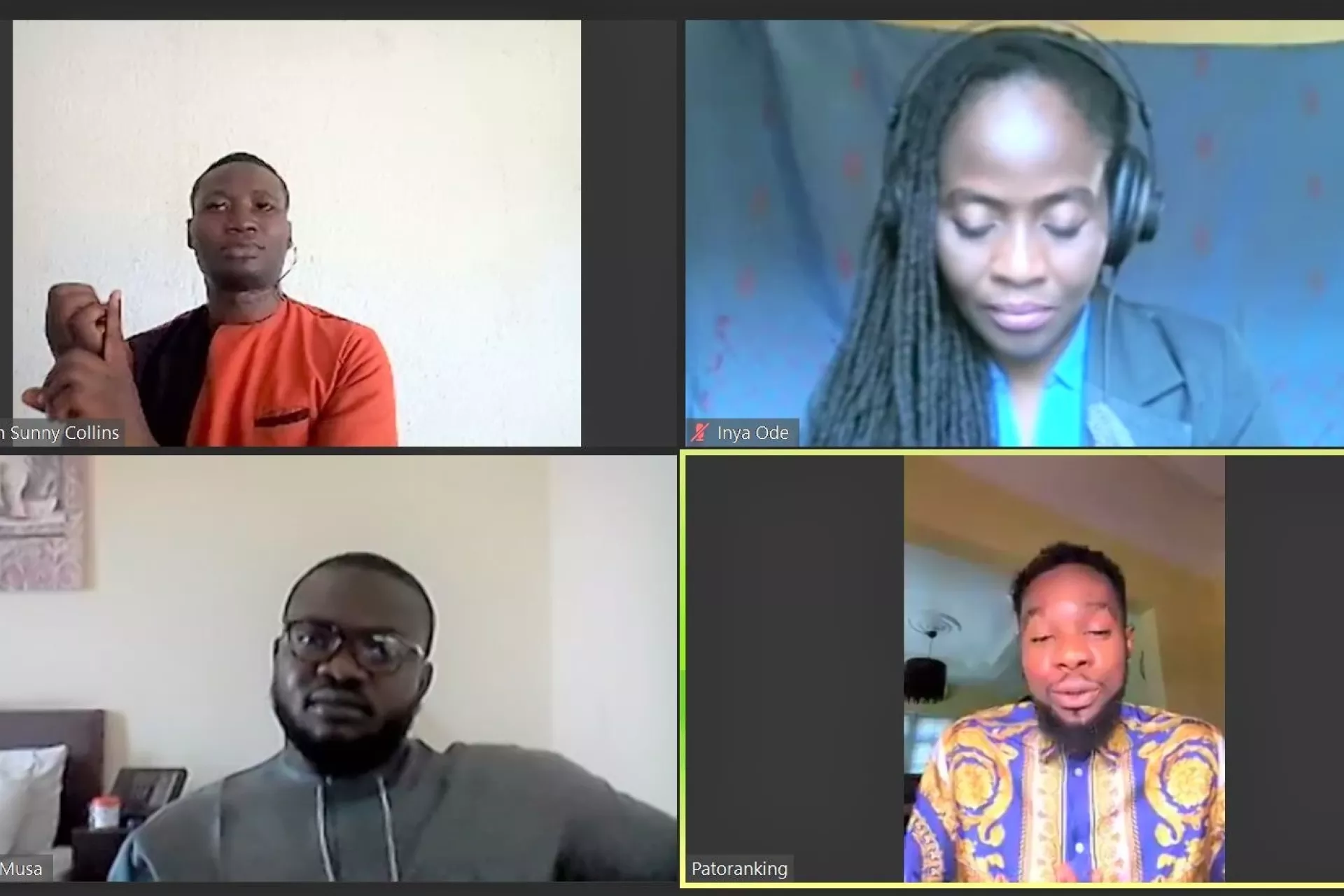Promoting inclusion and empowering young people living with disabilities in Nigeria
A virtual event hosted by UNICEF and other UN agencies in Nigeria provided a platform for young people living with disabilities to feel included and empowered as they joined hundreds of other young people to learn about advocacy

For a community of young people living with disabilities in Nigeria, engaging with other young people usually means the ability to access a supportive environment where they can express themselves.
A virtual event hosted by UNICEF and other UN agencies in Nigeria on International Youth Day 2020 provided a platform for them to feel included and empowered as they joined hundreds of other young people to learn about advocacy.
Themed ‘Youth engagement for global action’, the virtual event brought together speakers such as Patoranking, singer and youth advocate; Beverly Naya, actress and filmmaker; Mohammed Keana, team lead, Almajiri Child Rights Initiative; Musa Musa, advocate for people living with disabilities; and young influencers. They provided practical examples of how they have executed successful advocacy initiatives and encouraged young peoples’ meaningful engagement in global issues – especially in making the SDGs a reality.
To ensure that the virtual event, held on Zoom, was more accessible to young people with hearing disabilities, videos used were captioned and a youth advocate and sign language interpreter was present to ensure easier communication.
“It was an honour to be a part of the discussions on youth advocacy and use my skills as a sign language interpreter to help empower young people living with disabilities,” said Joseph Collins, a professional sign language interpreter working to help the deaf community in Nigeria bridge the communication gap.
Young people living with disabilities regularly experience barriers to their inclusion in Nigerian society. Their abilities are often overlooked and underestimated, and many times, their needs are given low priority. It therefore encourages them to participate more actively in their communities when their needs are given priority in a supportive environment.
“I appreciate the inclusive nature of this webinar,” commented Ohakwe Onyediziri, an event participant, in the chat box. “The sign language interpreter is doing a great job. I can identify with him.”
“Building the capacity of young people living with disabilities to advocate more effectively helps them find a seat at the table, articulate their opinions and contribute to decisions being made about their world,” said Oluwatosin Akingbulu, UNICEF Nigeria Communications Officer and coordinator of the event.
“Participation of young people is a right, just as inclusion is a right, and for inclusion to be significant, it is necessary to provide platforms that engage young people living with disabilities.”
During the interactive session, the experiences shared by key speakers in response to questions from the participants helped the young listeners understand how to meaningfully advocate for causes they are passionate about. It also helped them gain a deeper understanding of issues on inclusion.
“We want you to see young people living with disabilities as partners who are ever ready to contribute to the country,” said Musa Musa, one of the key speakers and an advocate for young people living with disabilities. “Let's have an inclusive approach where every category of youth in Nigeria is a stakeholder.”
The Convention on the Rights of Persons with Disabilities, building upon the existing provisions of the Convention on the Rights of the Child, promotes and protects the rights of young people living with disabilities. Their full inclusion in society is possible – with a recognition that young people living with disabilities have the same rights as others; that they can be changemakers; and that their voices must be heard in policymaking and programmes.
Every young person has hopes and aspirations – including those living with disabilities. And all of them deserve a fair chance to be empowered and achieve their full potential.




